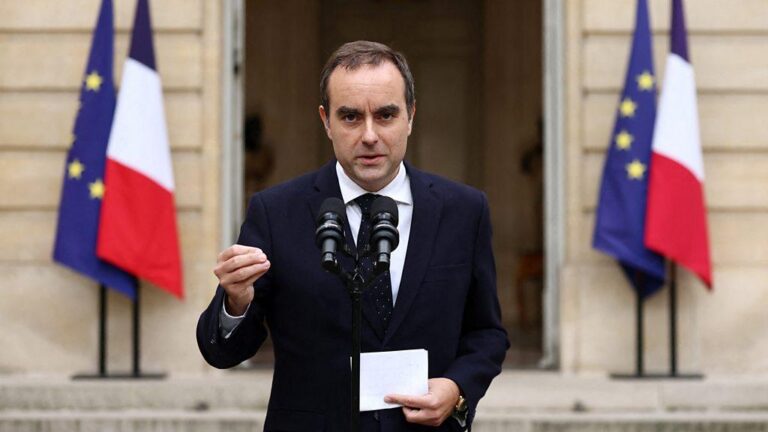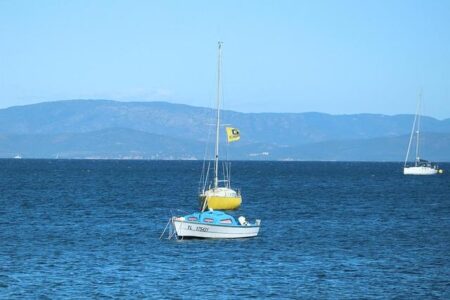In the intricate landscape of French politics, where ideological divides run deep and coalitions often crumble under the weight of competing interests, the nation finds itself ensnared in a troubling deadlock. With legislative gridlock becoming the new norm, the political arena has transformed into a battleground of bargaining and backstabbing, where alliances are forged and fractured with alarming frequency. As France grapples with pressing issues from economic recovery to social reform, the urgency to break this impasse intensifies. In this analysis, we explore the complexities of the current situation, examining the key players, their maneuverings, and the potential paths forward that could restore stability to the French political sphere. Join us as we delve into the ongoing debate surrounding this critical juncture in France’s democracy.
Understanding the Roots of Political Paralysis in France
The roots of political paralysis in France can be traced back to a combination of systemic inefficiencies and entrenched party loyalties. The fragmented nature of the French political landscape has rendered it challenging for any single party to command a majority, resulting in frequent deadlocks. Key factors contributing to this stalemate include:
- Multiparty System: Numerous political entities compete for influence, complicating coalition-building efforts.
- Voter Disillusionment: Growing apathy among the electorate has led to lower participation rates, impacting the legitimacy of elected officials.
- Regional Disparities: Varied economic and social conditions across regions create divergent interests that complicate national consensus.
Moreover, the recent rise of populist movements has further exacerbated tensions within established parties, often stymying meaningful dialogue. Political leaders are now facing unprecedented challenges, with questions of governance and reform taking center stage. To rectify the current deadlock, they must confront several pressing issues:
| Challenge | Proposed Solution |
| Coalition Fragmentation | Initiate dialogue for grand coalitions |
| Electoral Reforms | Implement proportional representation |
| Public Disengagement | Enhance civic education initiatives |
Strategic Alliances: The Key to Effective Bargaining
In the complex arena of French politics, forging strategic alliances has emerged as a vital tool for navigating the turbulent waters of bargaining. By collaborating with like-minded entities, political players can consolidate their power and amplify their influence. These alliances can take various forms, such as:
- Coalitions with smaller parties to create a broader base of support.
- Partnerships with influential lobbyist groups that share common interests.
- International collaborations to draw on foreign support and expertise.
Successful bargaining relies heavily on trust and mutual interests, making the cultivation of strategic alliances all the more essential. Recent efforts have shown that when parties come together, they can leverage their collective bargaining power to address critical issues. A well-timed alliance can also shift the political landscape, providing leverage against opposition forces. Consider the table below, summarizing recent successful alliances in French politics:
| Alliance | Purpose | Outcome |
|---|---|---|
| Leftist Coalition (2022) | Countering government austerity measures | Improved bargaining position in the Assembly |
| Green Alliance (2021) | Environmental policy reform | New legislation passed on carbon emissions |
| Labor Unions Collaboration (2023) | Worker rights advocacy | Successful strikes leading to wage negotiations |
Navigating the Backchannels: Turning Rivalries into Cooperation
In the labyrinth of French politics, rivalries often overshadow the potential for collaboration. Yet, by harnessing the art of backchannel diplomacy, key political players may find pathways to cooperation that are not immediately visible in public discourse. Trust-building exercises, such as informal roundtable discussions among opposing factions, can help bridge divides. Engaging in joint policy workshops allows parties to collaboratively address common issues, fostering a spirit of mutual understanding that can lead to more productive negotiations. Key stakeholders must remember that sometimes the fiercest opponents can become the most valuable allies in driving essential reforms.
The challenge lies not only in initiating these dialogues but also in sustaining momentum once they begin. Strategic concessions can provide a crucial foundation for ongoing discussions. Some effective methods for fostering cooperation include:
- Establishing common goals that transcend party lines.
- Creating cross-party alliances on specific legislative initiatives.
- Organizing community engagement sessions to gather public input, allowing for a more democratic approach.
This approach will enable leaders to shift the narrative from conflict to collaboration, ultimately benefiting the French populace and nurturing a more stable political environment.
Proposed Solutions: A Path Forward for France’s Political Landscape
The current impasse in France’s political arena requires innovative solutions that can foster collaboration and enhance public trust. One approach is to establish a cross-party coalition, leveraging shared priorities to create a unified front. This coalition could focus on key areas such as economic recovery, climate action, and social justice. By prioritizing these urgent issues, political factions might find common ground, prompting bipartisan initiatives that resonate with citizens. Additionally, increasing public engagement through regular town hall meetings and digital platforms can encourage grassroots participation, giving citizens a voice in policy-making and fostering a sense of ownership over the political process.
Moreover, the introduction of electoral reforms could reshape the landscape, addressing voter disillusionment and enhancing representation. Implementing proportional representation could ensure that minority voices are heard, reducing the electoral dominance of major parties. Additionally, term limits for political officeholders could encourage fresh perspectives while preventing entrenched interests from dominating discussions. A transparent system for decision-making, bolstered by independent oversight, would enhance accountability and trust among the populace. As France seeks to navigate its political complexities, embracing these strategies may illuminate a path forward.
The Conclusion
As the political landscape in France continues to grapple with complexities and contradictions, the need for effective negotiation techniques and strategic alliances has never been more pressing. The ongoing deadlock threatens not just domestic policy but also the nation’s standing on the global stage. As seen in our analysis, understanding the intricate dance of bargaining and backstabbing is critical for navigating these turbulent waters.
With varying opinions, political ambitions, and an electorate eager for change, the path forward remains fraught with challenges. Ultimately, the success of any resolution will depend on the willingness of leaders to engage in authentic dialogue, prioritize the common good, and break free from entrenched rivalries. As France moves ahead, the hope for a cohesive political strategy that addresses the needs of its citizens persists, driving a renewed call for unity and collaboration in the face of adversity. The question remains: Can the key players rise above the fray and foster a new era of cooperation? Only time will tell.




